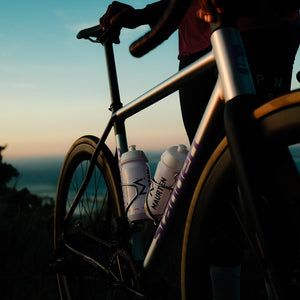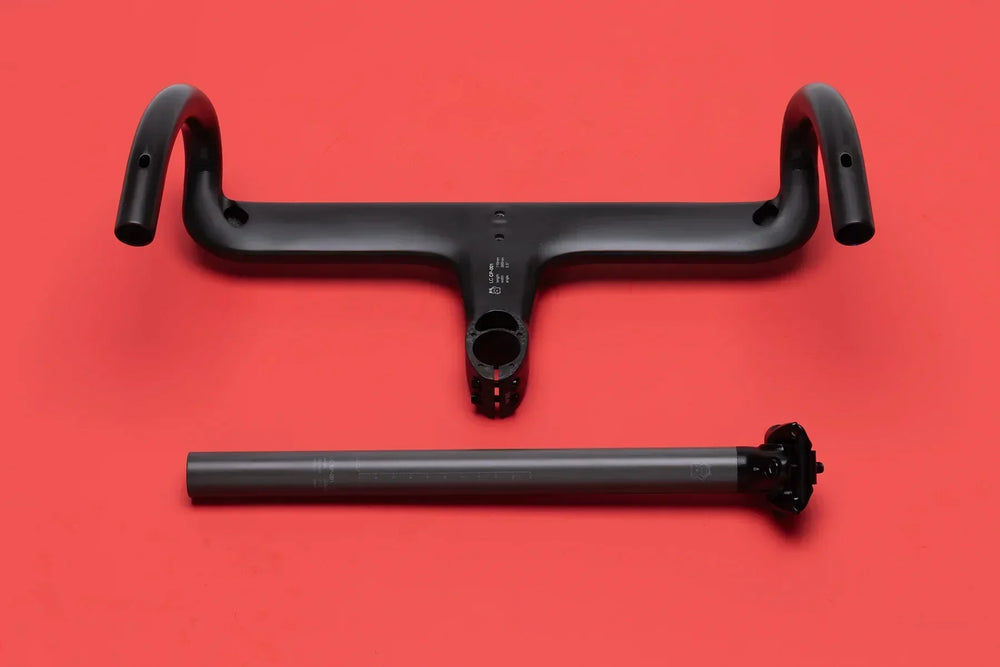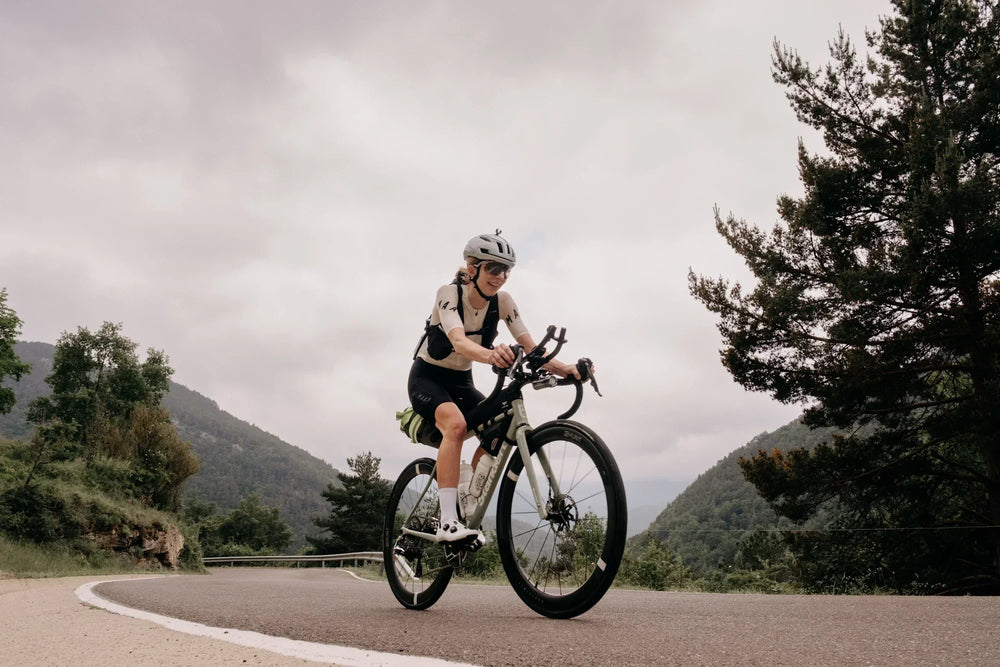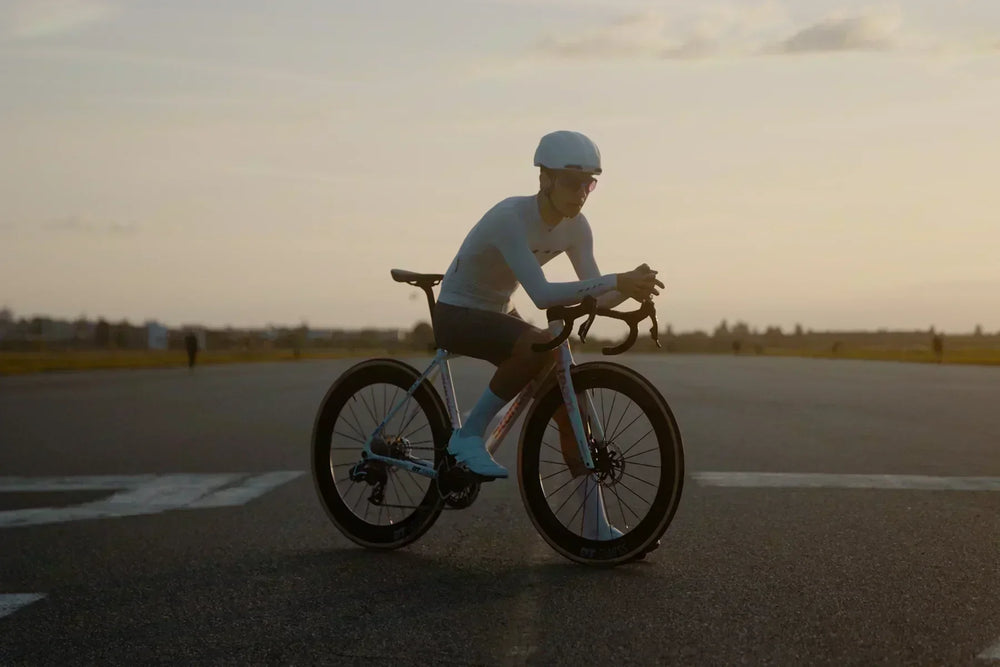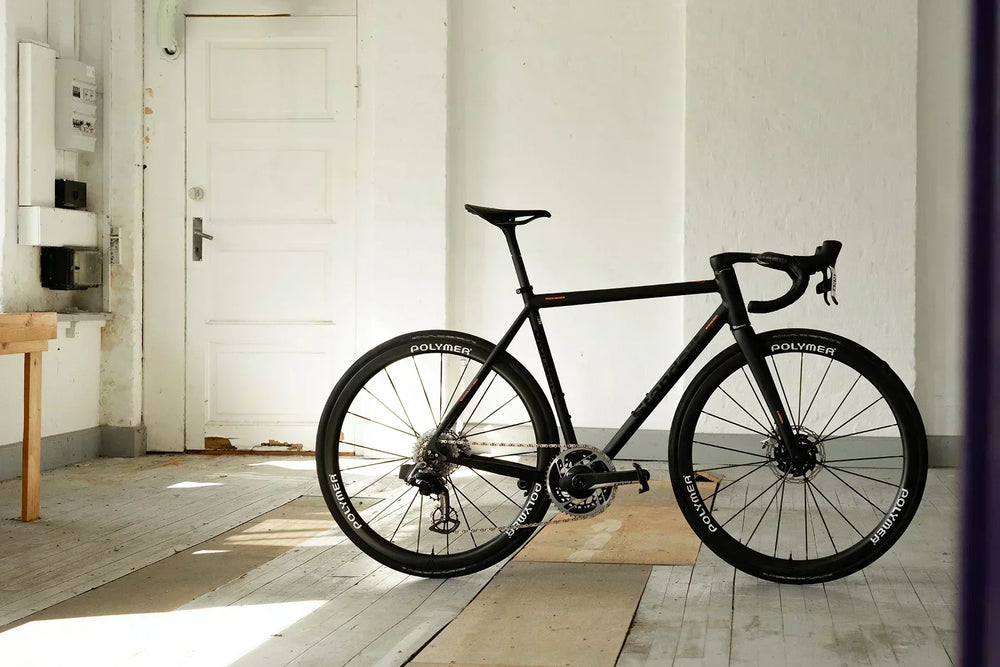Kresten Thogersen is the Managing Director and Co-owner of Field coffee in Berlin, whose coffee you would have tried if you've had a coffee at our Berlin showroom. Like the other two Field owners, he’s from Australia. Field has been roasting for five years, and shipping across Berlin and Europe. They roast from their Marzahn roastery where our in-house coffee guy and Team Standert cyclist Tom Burton dropped by to have a chat, with our photographer Savannah van der Niet on the camera.
How did Field begin?
In the beginning I was operating a cafe and the other guys were too. We separately wanted to start roasteries, and when I heard they were doing it too we joined forces. I’m hyper aware of my weaknesses as a business owner, and their strengths were my weaknesses and vice versa.
In the beginning we started it as a holistic reason more than a product – when you’re a business ordering so much of a single product you want to have more control. Gradually we perfected the product though, and that’s become the priority.



Can you give a quick overview of the coffee roasting process?
Sure thing. We roast all of our coffee on a Probat roasting machine that is made in West Germany. A very well built and sturdy machine. We’ve been roasting on this machine since we started. We roast 10kg batches of beans–well, seeds is what they actually are–and monitor the roasting profile with roasting software made by a company called Cropster. It allows us to maintain consistency and also satisfies the nerd in us.… We do about 30 batches a day give or take, so at the moment we are roasting around 700kg of coffee per week.
Roasting coffee is essentially about achieving an even roast throughout the entire bean. You want the inside of the coffee bean to be cooked enough and the outside of the bean to not be very dark (well we want that) because undercooked coffee tastes grassy/malty and overcooked coffee, the term is ‘roasty’, tastes sehr shite – like ashtray and burnt wood. The notes that you see written on our coffees are created through all of the complex chemical reactions that take place during the roasting process due to the high temperatures. The reason that coffee, and most things you cook, turn brown initially is because of the maillard reaction, which is reducing sugars reacting with amino acids. This starts as an endothermic reaction at around 130°C and the beans begin to go from green to hay colour. As the bean temperature rises to around 150°C the reaction changes to an exothermic reaction and the beans quicken in their travels to browning. Then around 190°C caramelization begins, which is essentially reducing sugar and turning the coffee a darker brown.
At Field we focus on a few origins for our coffee. The ones where we have the strongest ties and relationships, and they are Brazil, with the Olievera family in Minas Gerais, in El Salvador with the Batlle family and then in Colombia where one of the Batlle family and us were going to set up a company and coffee farm, but currently its just buying from producers there.
Does the political situation there affect the coffee production?
Interestingly, not really. But the Suez Canal situation, that really slowed things down.
Instead of trying to affect the political situation, we focus on what’s best for a farmer. A lot of places talk about this direct farmer to roastery relationship and how great that is, but the thing is that’s only good if the farmer says it’s good for them. If you go to a farmer and say “I’d like to buy your entire crop for more than you’d usually sell it on the commodity market” then you’re doing a good thing. That’s a more stable thing for the farmer. But if you go there and say “I just want the best coffee you can supply from your farm” it’s a different story. No farm only produces top quality, because each harvest will be different. If you’re a hyper quality focused business you’d buy the top grade coffee, not the middle and bottom, and leave the farmer with all the lower quality crop. That’s where these importers can go in and have more power to help – they have so many clients that they can buy not just the whole crop of one year’s harvest, but commit to the year after and the year after that. That provides a more financially stable service to the farmer. Of course that means sometimes the quality is lacking. So as a roasting business, you have these sorts of decisions to make when it comes to the term “sustainability.”
Also, before you can even begin to talk about that you need to also be looking at your own business and if you’re actually paying your staff more than minimum wage and ask yourself if you’re paying your staff a living wage first.



How would you describe the coffee scene here in Berlin?
Well, I first came here for a holiday in 2008/2009. When I got here there was only one or two specialty cafes that had opened. Berlin went from being this place with these little coffee houses with bad coffee to, within five years, having the best coffee in all of Europe. It was an insane speed for that progression. When you grow a business or an industry or a culture – anything – you kind of need to do it slowly so you don’t get growing pains.
So you feel that there is growing pain?
Yes, for sure. It’s gone from zero to hero in the course of five years but the average salary of the workers is still the same. You’re still paid by the hour. If you’re the manager of a shop you don’t get paid by the hour, you get a salary.
Also the mental strain for workers here is significant as they have to jump between German and English, and that’s not reimbursed in a monetary way in Berlin. I think the first thing a lot of cafe staff should be told is not to make people speak in English to order their coffee–I mean, when you wake up in the morning the first thing people are getting to wake them up is coffee. Don’t make people switch to English to get the thing that wakes them up (laughs).
Yeah I remember when Morgan opened Silo, and there were 10-15 cafes then. Now there’s like, more than 50 easily…
Yeah, there’s so many. People are so much more aware of specialty coffee now... Where are you from in the UK?
Orsett in the South. There’s not so much of an espresso culture there. If you get filter coffee there It’s more like the American diner style. Are you from Melbourne?
Originally I’m from a surfer town called Byron Bay. It’s a holiday town that has more tourists than locals (laughs), but I lived in Melbourne for some years. It was a huge influx of Italians in the 50s that brought espresso machines to Melbourne that resulted in the city adopting this Italian culture and it slowly evolved into what it is now.





We sell your coffee here at Standert. How did that come about, were you already aware of us?
Very much so. I used to ride past your original shop every day as I rode to the Nordic embassies when I was setting up a cafe. I was aware of you guys very early on and then your friendship with Morgan was the original cause in the partnership.
Yeah originally we were getting coffee elsewhere and I started working here and was like ‘we’ve got to get this coffee, it’s too good!’
It’s good. Yeah, the kind of culture surrounding coffee and bikes is very harmonious and meshes together nicely.
What’s your personal involvement in cycling?
I try hard to ride bikes… professional “get-dropped-er” (laughs).
That’s always a good place to start (laughs). You have been riding bikes a long time though, right?
Yeah, definitely. Although in the last six months I’ve learned more about zones and what heart rate does and more of that side of things.
It’s a slippery slope once you get a computer and a heart rate monitor and a power meter.
Yeah, and it’s also slippery in the wrong direction–
It becomes an obsession...
Yeah, just trying to do base training. It’s so painfully easy and yet it’s really easy to not do it. I’m currently enjoying my Friday trips to Grunewald and doing hill repeats on the Teufelsberg hill.



Lastly, where can people in Berlin go to have a Field coffee?
You can go to one of our three cafes - Father Carpenter, Sorrel or Silo, or a number of cafes that use our coffee or our sister brand, Fjord Coffee. Here are some off the top of my head that I'd highly recommend;
-
Kaffeebar, Kreuzberg
-
Hallesches Haus, Kreuzberg
-
Distrikt, Mitte
-
Wilke, Neukölln
-
Kafe Kraft, Prenzlauer Berg & Pankow
-
Käyke, Mitte
-
Goldhahn und Sampson
-
Domberger Brot
-
Factory Girl
-
Le Bon
Follow Field on Instagram, buy their beans online to drink at home, or stop by the above cafe’s for a Field coffee.
Field and Standert also recently collaborated on a coffee that'll give you a perfect pre-race buzz. You can shop the collaboration on their website, too.



